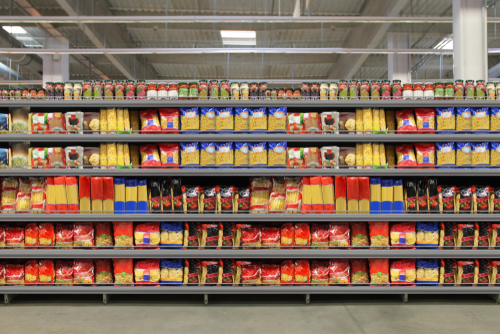What is a Flanker Brand?
As companies diversify more than ever in the 21st century, flanker brands become more and more crucial to the success of the company’s products. What is a flanker brand?
Definition of Flanker Brand:
It is a product of the same category as another product but is a variant. A simple example would be adding vegetable crackers to a line of crackers that already included flavors of cheese, bacon, and chicken. Another example would be adding a 2-pound box to an array of sizes that already included 8, 12, and 16 ounces.
Why Flanker Brands are Important?
Such brands can help you expand into heretofore untapped markets. Let’s say you perform a survey study about ice cream flavors. Let’s also say you currently carry three flavors: vanilla, chocolate, and strawberry. After perusing the results of your study, you see that prospective customers in your target demographic would love to see more coffee-flavored ice cream. You could then produce coffee ice cream and fulfill those customers’ needs.
If you’ve already built a strong reputation for your company by providing exemplary products in the past, you can capitalize on that reputation when you roll out new products, which saves on marketing and advertising costs. Your hard-earned reputation does the selling for you.
Flanker brands also allow you to keep a full slate of products on the market should you need to remove a slow performer from the lineup. Using our ice cream example, strawberry sales could be far below expectations, but you would still have vanilla, chocolate, and coffee available to maintain your market share.
Not Just Products
The concept of flanker brands also applies to services rendered. Let’s say you run a full-service car wash and provide “all the trimmings,” such as hot wax, rust-inhibiting treatments for the undercarriage, interior vacuuming, and the like. If you wanted to reach a subset of customers who could not afford such premium services, you could create a flanker brand of self-serve car washes where customers could buy time and perform the washing duties themselves. You could also market such a brand to thrifty customers as well as low-income customers. Many such car washes also have sub-flanker brands on their property, such as self-pet washing facilities or laundromats.
Flexibility is Key
Stagnant businesses die out even if their products are first-class. People in the 21st century have short attention spans and don’t remember the last 40 years of a business providing exceptional products or services. They’re seduced by the latest flashy ad they saw on Twitter. They like the brightly colored packaging of something they see in the aisle at the grocery store and buy it even if the quality is inferior to your product in the plain white box. Nothing says you have to skimp on quality, but if you had nifty packaging of your own, you could reach these attention-deficient customers on the 140-character world.
Customers are, by and large, self-absorbed. In today’s society, people tend to think of themselves as the center of the universe. You can tap into that arrogance by creating flanking brands of your existing products and services that stroke the customers’ egos. Make it seem as if choosing your newest product was their idea in the first place. Basically, when it comes to “doing one thing and doing it well,” make that one thing “convincing your customer he or she is smart and well-informed.”
Related Resources:
